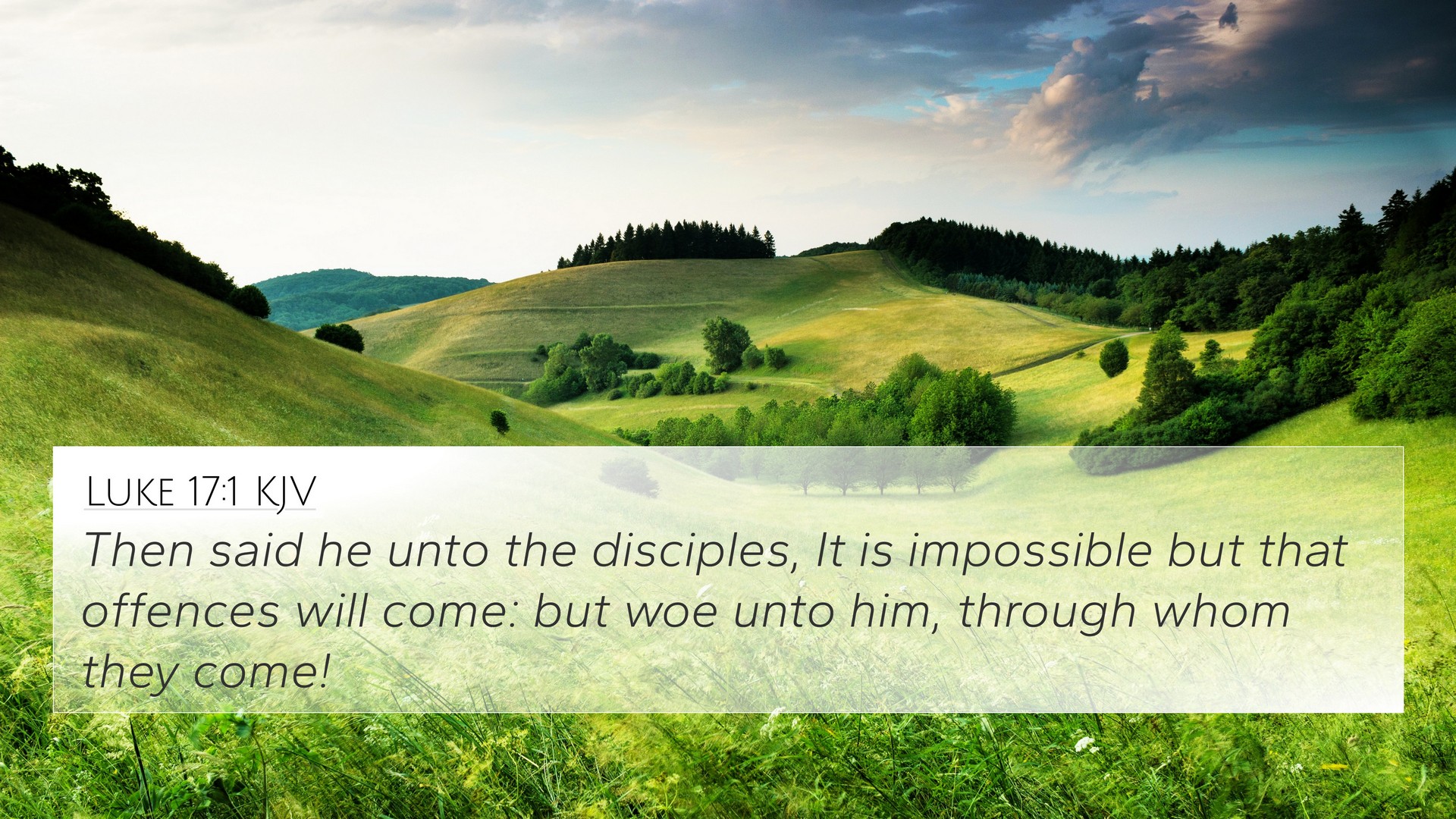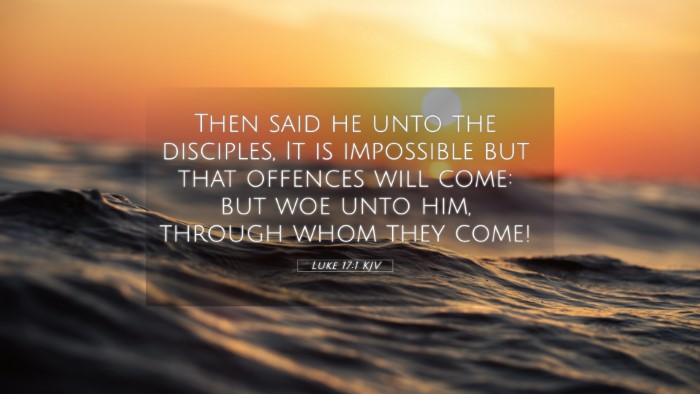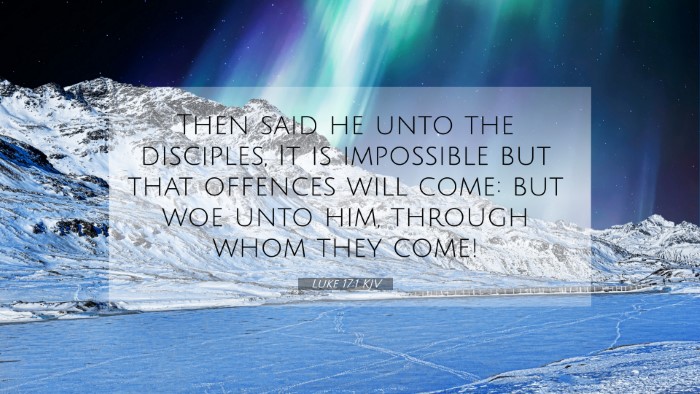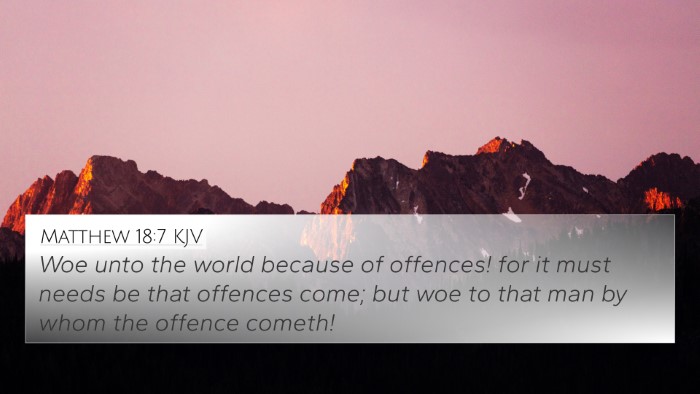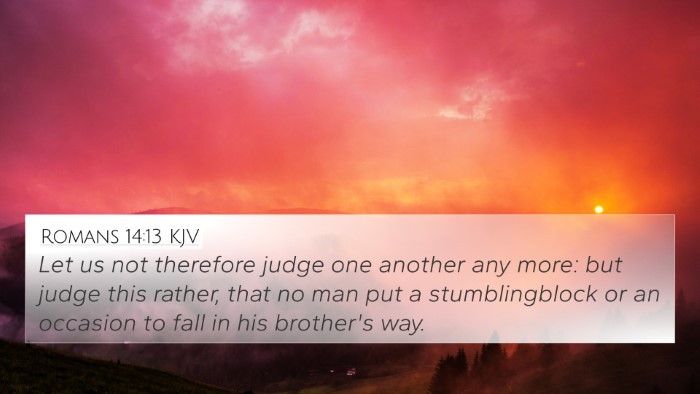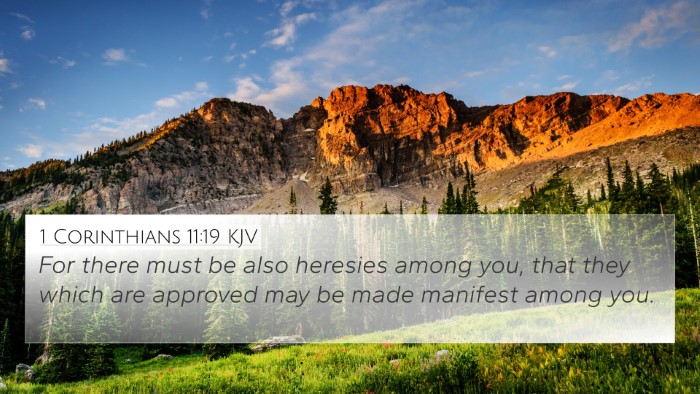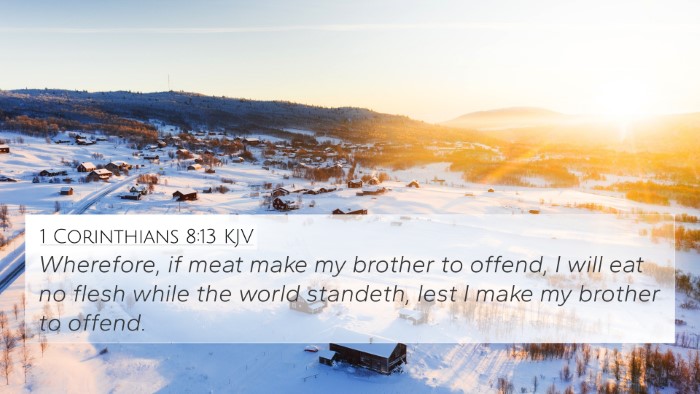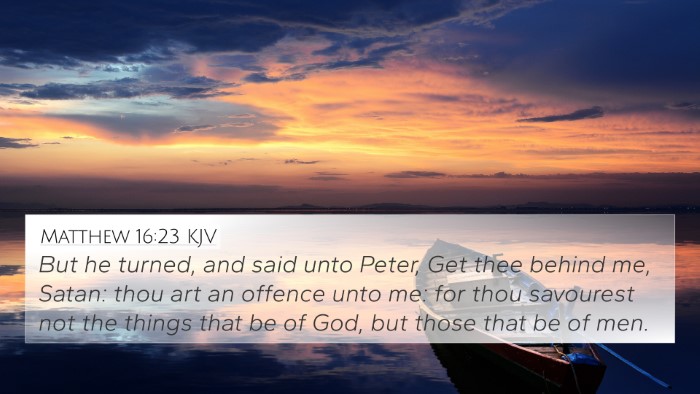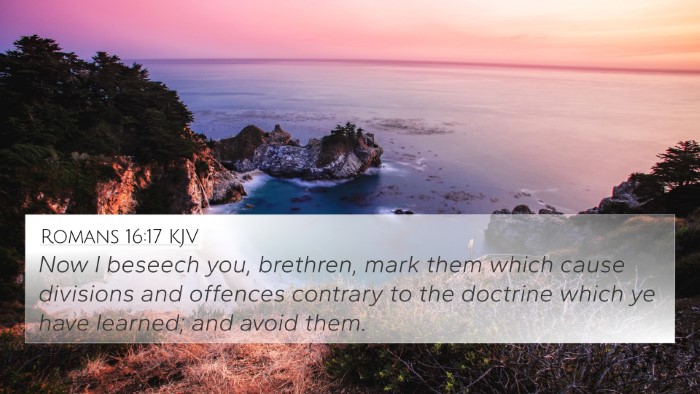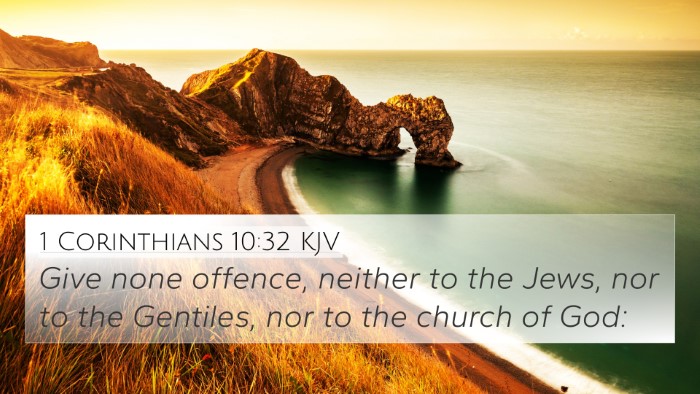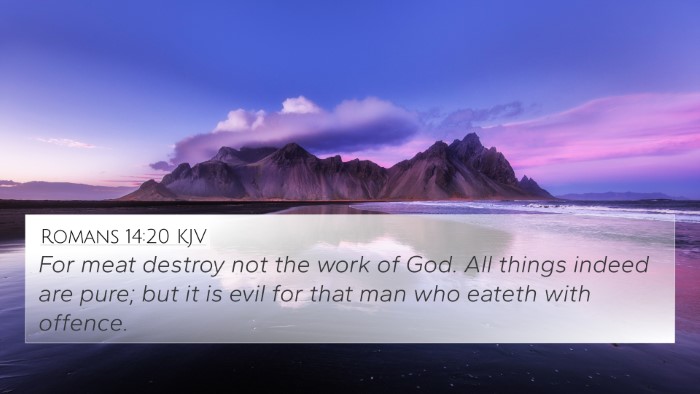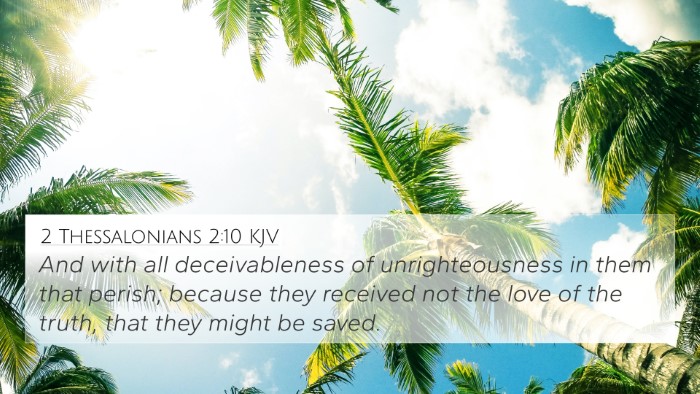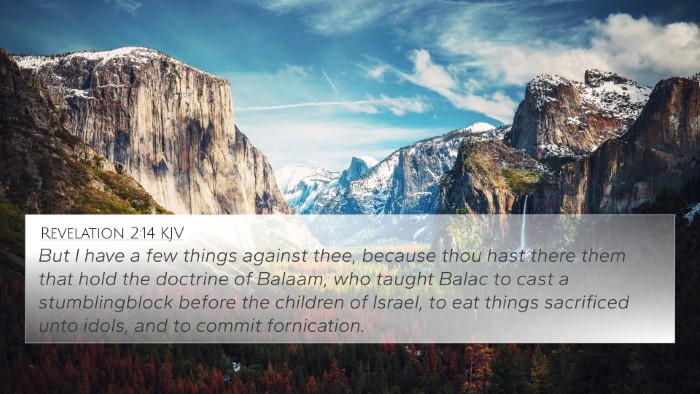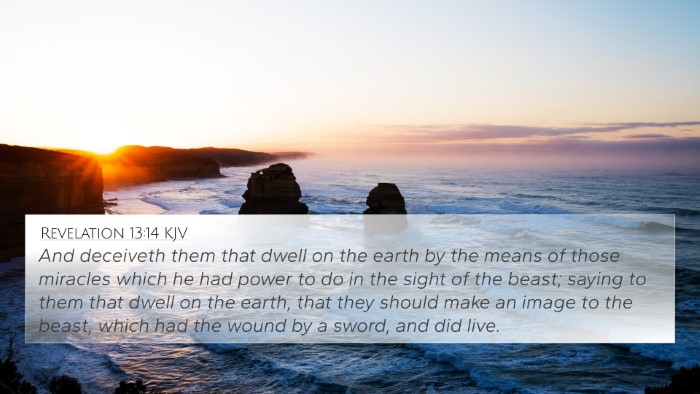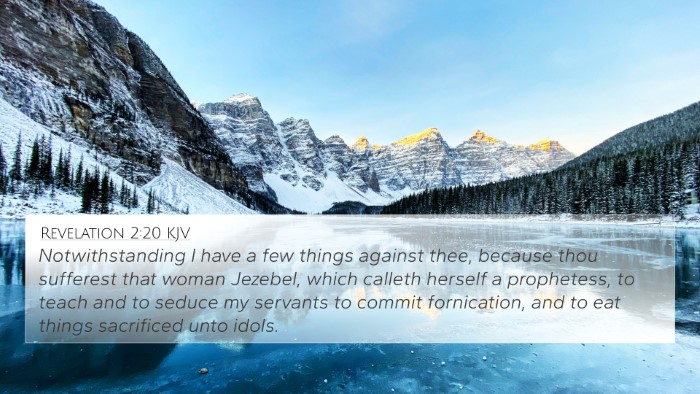Understanding Luke 17:1
Verse Text: "Then said he unto the disciples, It is impossible but that offences will come: but woe unto him, through whom they come!" (Luke 17:1, KJV)
Summary of Meaning
This verse highlights the inevitability of offenses and temptations in the Christian walk, while simultaneously pronouncing a warning against those who cause others to stumble. It underscores the responsibility believers hold towards each other, particularly in causing or preventing spiritual harm.
Insights from Commentaries
Matthew Henry's Commentary:
- Henry emphasizes the certainty of offenses; they are a part of human experience.
- He points out the emphasis on preventing offenses against others as a moral imperative.
- The "woe" pronounced signals the seriousness of leading another into sin.
Albert Barnes' Notes:
- Barnes explains that "offenses" refer to anything that leads others into sin, portraying the reality that such temptations will occur.
- He indicates that this verse serves not only as a warning but also highlights God’s justice for those who cause others to sin.
- He elaborates on the idea that the presence of temptation is part of the fallen world, but it is crucial how one responds to it.
Adam Clarke's Commentary:
- Clarke speaks to the inevitability of offenses, reminding readers that this is a reflection of human fragility.
- He emphasizes the moral weight carried by the individual who leads another into sin, drawing attention to the consequences involved.
- Clarke often interlinks this verse with practical applications in the believer's conduct towards others.
Cross-References
This verse can be linked with several other scriptures that provide a fuller understanding of its message. Consider the following:
- Matthew 18:6: "But whoso shall offend one of these little ones which believe in me, it were better for him that a millstone were hanged about his neck, and that he were drowned in the depth of the sea."
- Romans 14:13: "Let us not therefore judge one another any more: but judge this rather, that no man put a stumblingblock or an occasion to fall in his brother's way."
- 1 Corinthians 8:9: "But take heed lest by any means this liberty of yours become a stumblingblock to them that are weak."
- Galatians 5:13: "For, brethren, ye have been called unto liberty; only use not liberty for an occasion to the flesh, but by love serve one another."
- James 3:1: "My brethren, be not many masters, knowing that we shall receive the greater condemnation."
- Luke 11:52: "Woe unto you, lawyers! for ye have taken away the key of knowledge: ye entered not in yourselves, and them that were entering in ye hindered."
- Matthew 5:29-30: "And if thy right eye offend thee, pluck it out, and cast it from thee: for it is profitable for thee that one of thy members should perish, and not that thy whole body should be cast into hell."
Connections and Themes
The thematic connections found throughout New Testament scriptures reinforce the principle of moral responsibility believers have towards one another. Offenses act as a recurring theme that requires careful navigation in the life of a Christian, emphasizing the need for compassion and vigilance.
Conclusion
Luke 17:1 serves as a poignant reminder of the serious implications tied to causing others to stumble in their faith. By understanding this verse in light of various commentaries and interconnected scriptures, believers can glean valuable lessons on personal conduct and community responsibility, nurturing their faith and that of others.
How to Utilize Cross-Referencing
Engaging in a comprehensive bible cross-reference system allows for deeper understanding and contextual awareness. Tools such as a bible concordance or a bible cross-reference guide can assist in exploring connections between Bible verses. This method can uncover thematic Bible verse connections and offer insights into broader scriptural narratives.
